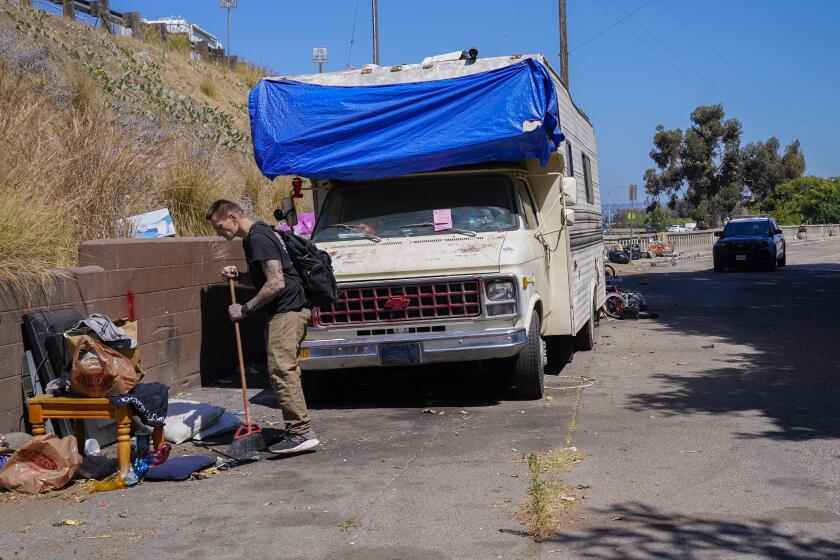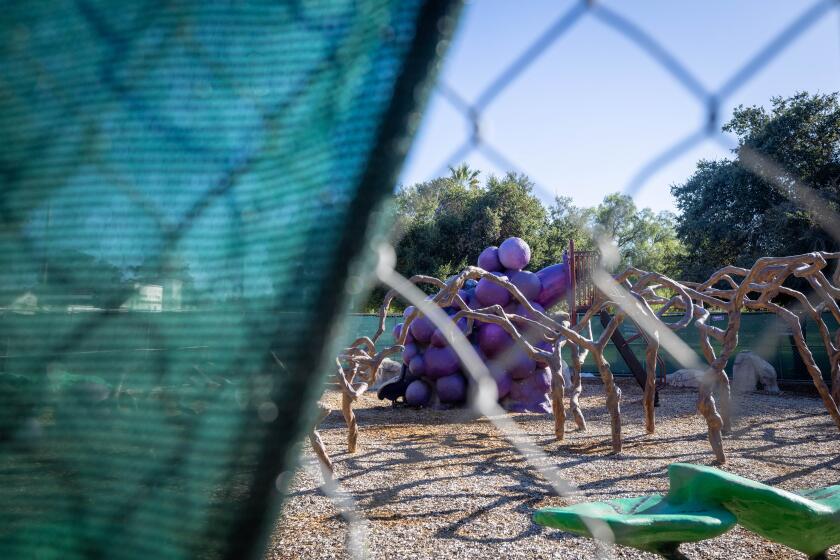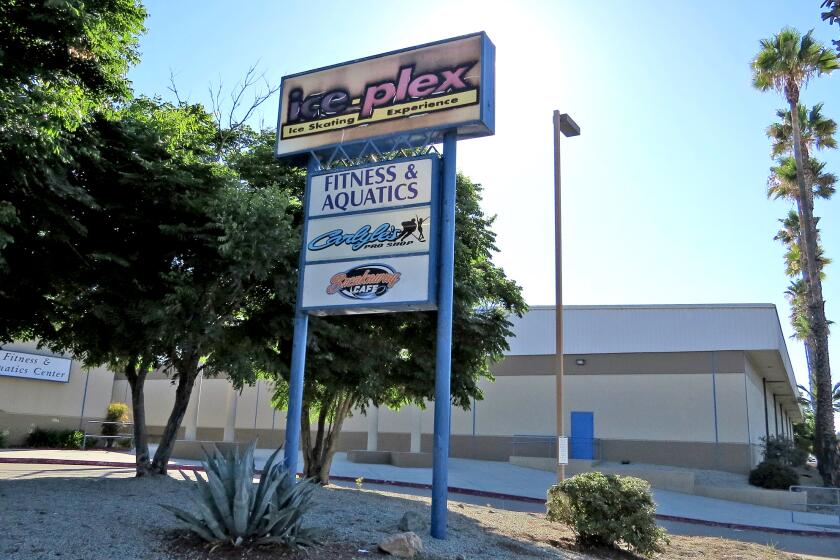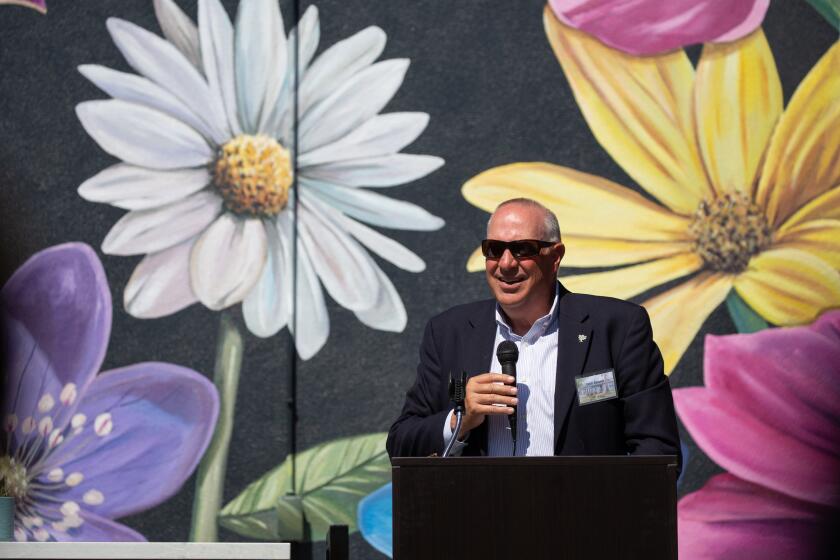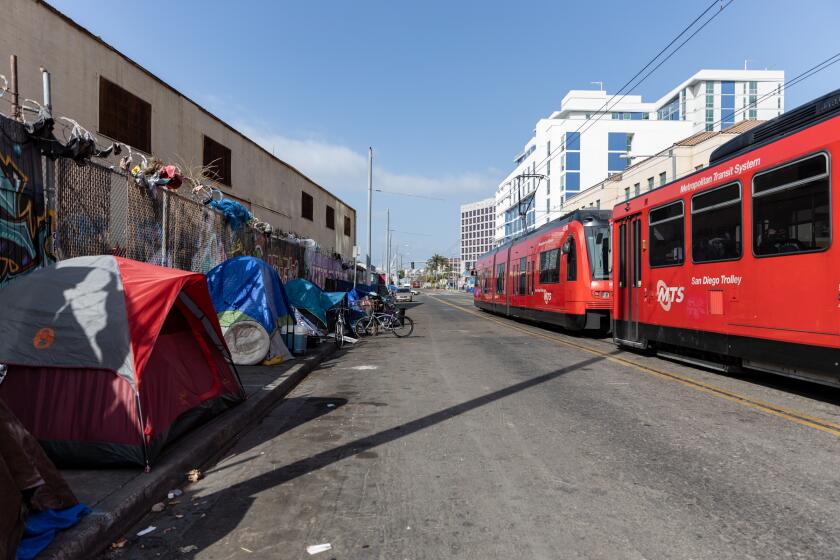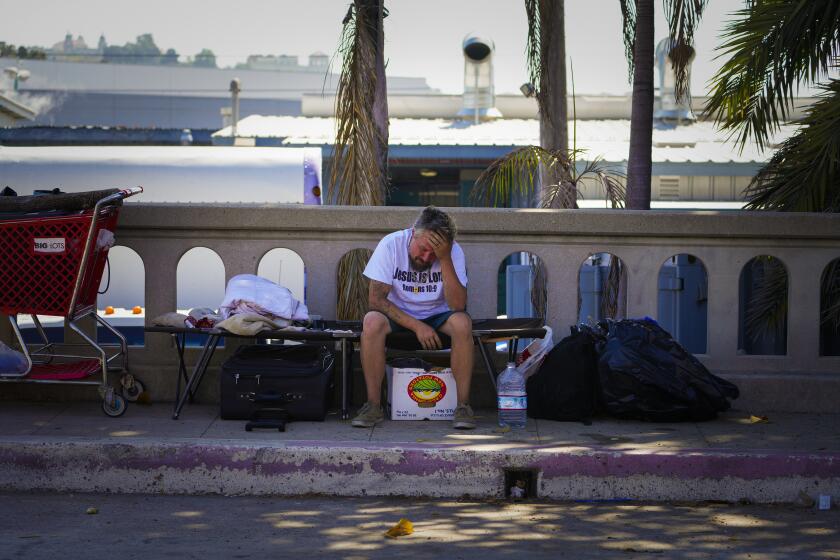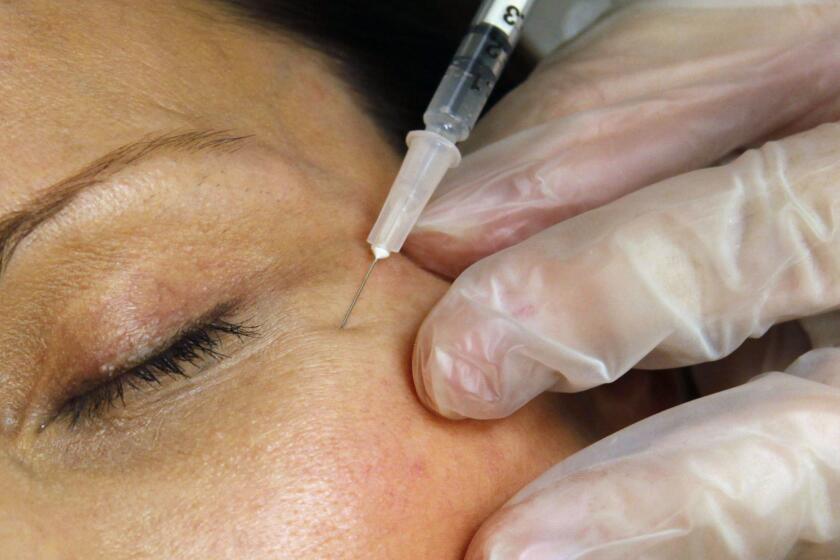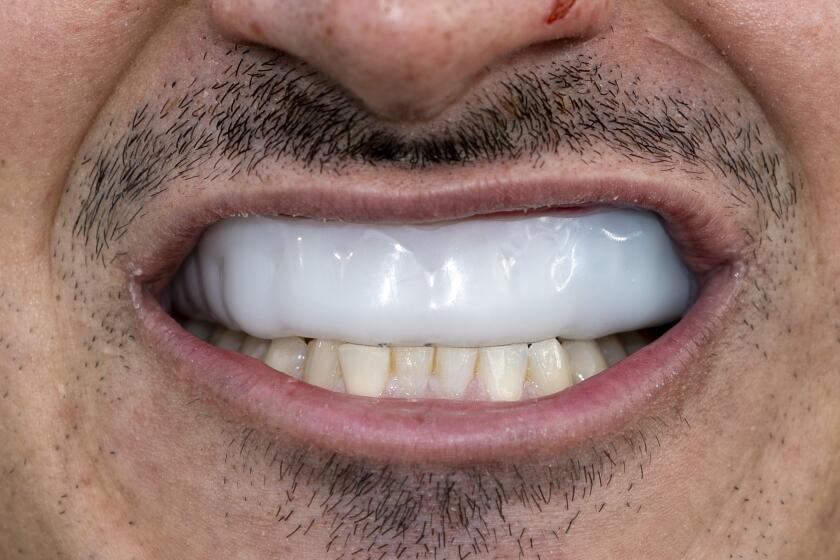Homeless shelter tenants tested for COVID-19
Woman with symptoms at Alpha Project tent stayed for days before being isolated
Two of San Diego County’s largest homeless service providers had scares of an outbreak at their shelters this week when some of their clients were hospitalized and tested for COVID-19.
Officials at the Alpha Project and Father Joe’s Villages learned late Wednesday that tests of their clients had come back negative.
At Father Joe’s Villages, medical director Dr. Jeffrey Norris said a person who had been staying at the nonprofit’s Paul Mirabile Center interim shelter was tested for the coronavirus Tuesday afternoon and quarantined in a county-funded motel room after showing possible symptoms of COVID-19.
“Our organization actively screens clients for symptoms of coughing and fever, which are common symptoms of COVID-19, and we are working to minimize the spread of infection during this outbreak,” Norris said at a Wednesday morning online press conference.
The person who was quarantined had been coughing, but did not have a fever, he said.
“However, in an abundance of caution, a swab was collected from the client for testing through the county for possible COVID-19,” he said.
Two homeless people staying at bridge shelters operated by the Alpha Project also have been tested for the virus, and results show at least one does not have COVID-19.
Bob McElroy, president and CEO of the Alpha Project, said a woman who was staying at the nonprofit’s tented bridge shelter on Newton Avenue was taken to a hospital Saturday because she was sick. He said he heard she had been tested, but so far he has not heard the test results.
“I’m praying that no news is good news,” he said, adding that he assumed he would have been told if she had tested positive.
Another woman who had been staying at the nonprofit’s bridge shelter on 17th Street and Imperial Avenue also has been tested for COVID-19 and found not to have the disease Wednesday afternoon.
Before learning that she had been cleared, McElroy admitted he had been on pins and needles as he awaited results.
“I’m very concerned,” McElroy said Wednesday morning. “Because of our close proximity to each other (in the shelter), my greatest fear is that somebody is tested positive. What do I do? Quarantine 128 people?”
The Alpha Project operates two city-funded bridge shelters, so-named because they are intended to serve as a bridge between life on the street and permanent housing. Together they provide temporary shelter for about 460 people.
The incident left McElroy concerned about the protocol in dealing with people experiencing symptoms in the shelters.
County public health nurses are at the shelters daily from 3 p.m. to 9 p.m., and they had monitored the condition of a 37-year-old woman who was coughing and showing other signs of being ill for three days, he said.
She was taken by ambulance to UCSD Medical Center on Tuesday night and tested for COVID-19.
While test results showed she did not have the virus, McElroy was concerned that she could have infected others if she did have the disease, as she was coughing and appearing sick in the shelter for days before being removed. He also said he did not know until Wednesday that the county had offered motel rooms to quarantine people.
At Father Joe’s Villages, Norris said extra precautions have been taken to quickly identify and quarantine anyone showing symptoms.
Norris said their client was placed in a motel room less than five hours after the person was identified as sick.
At a press briefing on the outbreak Wednesday, Supervisor Nathan Fletcher said 1,472 motel rooms across the region have been made available to quarantine people. Of those, 100 of the county-funded rooms are available for the Regional Task Force on the Homeless.
Fletcher said public health nurses would begin screening people before they are admitted as new clients at the bridge shelters.
McElroy said that was good news, as he had barred new clients during the past few days out of fear of the virus spreading inside the shelter. He had not actually had to turn anyone away, however, because there have not been any vacant beds this week.
Fletcher, who along with Supervisor Greg Cox is on the county’s coronavirus subcommittee, said the region’s response to the outbreak is evolving.
“I appreciate Bob’s patience as we work through this,” he said, referring to McElroy.
Also on Wednesday, Fletcher said the county has placed 277 hand-washing stations throughout the region, and another 90 are coming.
Public health nurses are at the four bridge shelters operated by the city of San Diego, and Fletcher said the county plans to place them at other shelters.
Nurses also are working with seven homeless outreach teams, and they soon will be working with nine more, he said. The teams will do outreach to unsheltered people living on the street or encampments to provide them with hygiene items and information on the virus. Nurses also will screen people and offer motel rooms for quarantine if necessary, he said.
The county’s response to reaching unsheltered people has been criticized by some observers.
The Rev. Shane Harris, president of the People’s Alliance for Justice, held a press conference Wednesday morning and called on local officials to create teams specifically to screen unsheltered homeless people.
John Brady, advocacy director for Voices of Our City Choir, said he was encouraged by what he heard Wednesday, but more should be done. Brady is formerly homeless, and the choir is composed largely of homeless people.
“I think we should engage the Red Cross and FEMA, and treat this as the natural disaster it is,” he said.
Brady also said city and county leaders should consider turning unused public facilities into temporary shelters. Those could include college dorms, schools, the Convention Center and SDCCU Stadium, which are going unused because of the outbreak.
“We need to stop the police sweeps and allow people to shelter in place with social-distancing in mind,” he added.
Fletcher acknowledged that while additional efforts have been taken to help homeless shelters and reach the unsheltered population, more steps are needed.
“We know in all of these areas, we have to do more, and we will continue to do more in terms of ramping up those activities and operations,” he said.
During Harris’ press conference on Wednesday, he also announced the People’s Alliance for Justice is creating a team that will buy toiletries for seniors who are fearful of shopping for themselves because of the virus outbreak.
The team will be composed of about 15 volunteers in their 20s who will wear protective gear, and they are expected to be ready to shop by Friday.
Harris said seniors can call (619) 354-8051 and request up to 10 items on a wish list. People can help fund the project through a GoFundMe page.
Get Essential San Diego, weekday mornings
Get top headlines from the Union-Tribune in your inbox weekday mornings, including top news, local, sports, business, entertainment and opinion.
You may occasionally receive promotional content from the San Diego Union-Tribune.

